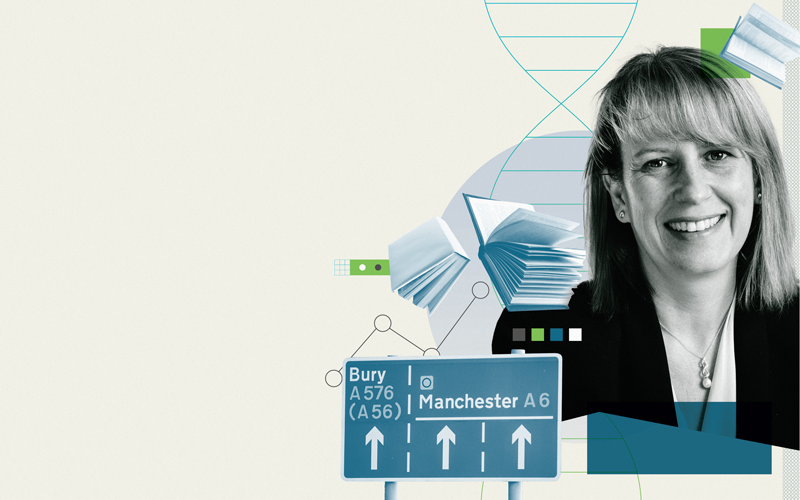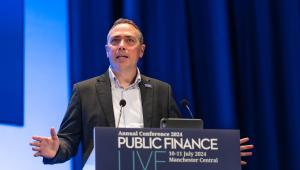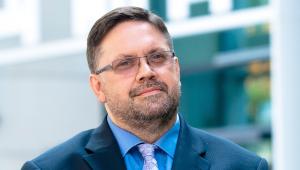
There’s a new team ready for power who want to make government better both in the UK and around the world.
Two new people will now be taking CIPFA forward at a crucial point for the sector, which needs clarity on what’s going to change in Whitehall and certainty about funding for services.
The good news is that they are experienced in delivering services and keeping standards, and also in supporting organisations to get back on track. That includes within Whitehall, local authorities and the health services.
Step forward Carol Culley, former deputy chief executive and city treasurer at Manchester City Council and currently one of the team of commissioners supporting Woking. She will be the president for the coming year, taking over from Caroline Rassell.
And taking over as chief executive is Owen Mapley, who joins from Hertfordshire County Council as the successor to Rob Whiteman.
The sector wants to put its case ready for a crucial spending review, as well as get answers on a range of hot topics including audit backlogs, NHS performance, devolution and more.
So, what better way to connect with the sector than to set out their own CIPFA manifesto agendas and motives for change? Surely, it’s Better Together, to borrow a campaign slogan…
CIPFA president Carol Culley
PF: Tell us about your career and yourself.
CC: Local government is in my DNA. My dad was a CIPFA accountant and my mum worked in the local library. Despite my dad saying accountancy was not for me, because of my lack of ability at maths, here I am! Having grown up in Basingstoke, I’m a Southampton FC supporter. I’m still in the elated phase post promotion back to the premiership, before the inevitable defeats come.
I’m proud to have had a career where I’ve been able make a difference. I spent 23 fantastic years at Manchester City Council, where I have been involved in so much that has helped shape the city. I came up through the social care route, where I found my niche as it was about people. Then someone spotted potential in me that I hadn’t seen and I moved into the corporate centre. Being deputy treasurer was the most fun – you get involved in everything but without the full responsibility of the Section 151 officer. Then I was really proud to become the authority’s first female city treasurer.
I love Manchester. It’s got real spirit. The council’s team are 100% committed to delivering for residents and for the city – and to do what’s right rather than just what’s expected.
This year I have decided to focus on my commissioner responsibilities in Woking. It was a hard decision, but the issues here could have repercussions across local government. It is a great council and I want to be part of the solution.
PF: What are your priorities for the coming year?
CC: This is going to be an interesting year with a lot of change. I’m excited to be working with Owen and I think he will bring a lot to CIPFA. I especially want to ensure I continue Caroline’s work. Continuity is important. I want to build on the achievements of past presidents, but also reflect my own values and the changes we face. I’ve set three priorities.
The first is pride and trust in public services. There are some brilliant people doing great things under huge pressure of demand. That applies from the NHS, to local government, to the criminal justice system. I don’t want the view of local government to be tarnished by the challenges of local audit or the demise of a handful of councils. I want to work with CIPFA to reset the balance and ensure a different view.
The second is sustainability. At Manchester, I led on climate change. There’s a need for us to use our CIPFA skills to assess the impact of our decision-making on sustainability and to lead the way on climate impact reporting. We can get on the front foot with help from our partners at ICAEW. It’s not all doom and gloom: there is hope.
My third objective is diversity and inclusion. This cannot ever be a box-ticking exercise. I want to build on the theme of social mobility and work to ensure we are representative of and relevant to all the communities we serve. I used to think it was sufficient to be open-minded. I realised it isn’t. We can’t just work with people who look and think like us, otherwise it’s like algorithms in social media pushing the same perspectives. Our strength comes from valuing our differences. I also want to be me. There is more to me than my profession, and it’s important to be authentic. Work-life balance is important. I see too many stressed people at the moment. We’ve got to tackle that.
PF: What’s great about CIPFA?
CC: It’s the only institute that stands for and supports the public sector. That matters to me. It equips people with the skills to support wider objectives – not just to look at a balance sheet. There are a lot of opportunities with the partnership with ICAEW, which enables you to have a broader career. There’s a lot to be proud of.
PF: What’s your message to international members?
CC: There are 64 countries holding elections this year –that’s a lot of change in the world. Standing for good public financial management is important now more than ever, and CIPFA does some great work with organisations such as the United Nations and the World Bank.
PF: What’s your advice to young members starting out?
CC: They’re rewriting the job and bringing new skills to what we do. They have the belief and values, especially on climate change and ethics. I’d really like to tap into that. It’s a really exciting time. There’s so much changing around the world and we have to keep pace with it.
CIPFA chief executive Owen Mapley
PF: What’s your career story and how did you get into public finance?
OM: I’m a big believer in the power of narrative and story. I now realise that my career has been like building a house. The first part of that was my time at PwC, where I trained to be an accountant. In advisory work, you have to build relationships, and, to succeed with the commercial aspect, you have to work in teams. That gave me strong foundations.
I got into the public sector by chance; I was in a meeting where a colleague was invited to go on a government secondment. She said no. I thought about it, got it and then spent a year in what was the Department for Constitutional Affairs and realised I wanted to be a public finance professional. That experience was a kind of career pillar, and then more came with roles in the Ministry of Justice and the Home Office.
I moved to local government because Hertfordshire was a great opportunity to focus on a role in a place that I know and love. That was eight brilliant years and another pillar.
And then, just as I asked myself what I might want to do next, the CIPFA role came up. With its sector-wide remit, I think this could well become the ‘roof’ on my career house. I’m really excited.

PF: How is your approach going to be different to Rob Whiteman’s?
OM: First, I have to pay tribute. Rob is a well-known person in the sector and he has really delivered for the sector. So, it’s a great opportunity to take forward such an interesting organisation following such a high-profile predecessor. He’s also been very generous with his insights and his time.
As for my style, that’s for others to judge. At the moment, I’m listening, learning and expanding relationships across the sector. I’m also going to be the connection between CIPFA and other organisations that we want to work with – including the new government.
And, like Rob, I can be the adviser to colleagues who just want to have a trusted sounding board. I’ll forge the rest of it as I go.
PF: Are there any ‘quick wins’ for you?
OM: Lots of CIPFA people have a view of where the organisation should be, including students and practitioners. I’m gathering ideas at the moment, so shaping all of that is an early priority.
The biggest thing right now is setting out our priorities and building relations with the new government.
PF: What’s your ‘ask’ for the new ministers?
OM: It’s all about delivery. I want to know if the same energy that went into tax talk during the election will go into constructing ways to get things done. We’ve got to recognise that so many services are under pressure, not just local government. I also want to know if they understand the volume and complexity of demand that so many services are facing – which is significant.
It’s clear there will be financial constraints, so we need more freedoms and flexibility at a local level. We have to keep pushing for longer-term settlements and planning periods. CIPFA can help with that.
PF: What are the challenges we’ll face and how can CIPFA help?
OM: We’ve got to protect investment in crucial infrastructure, both physical and regeneration. Borrowing for day-to-day is not smart.
There’s also sustainability and net zero. Our strategic partnership with ICAEW will help. We need to think about both good and bad impacts. And, on that, there’s technology, especially artificial intelligence. Big challenges.
PF: What are your thoughts on local audit?
OM: It’s clearly a massive issue. The work that’s being done is essential. The backstop is a pragmatic necessity, but just an initial step. We have to continue the work with relevant organisations, from regulators to finance teams. It’s a big deal having qualified accounts. We must not allow that to become the norm.

PF: What’s the next stage in the ICAEW partnership?
OM: We’ve moved into their HQ, which is a demonstrable sign of our closer working. It’s a very promising new strategic partnership. There will be new thoughts, new ideas and new collaborations. It’s exciting. The CPFA/ACA dual membership offer is a clear benefit. I’m a good example of it. It gives people more career flexibility.
PF: What can international members expect?
OM: CIPFA is rightly proud of its status as the only institute leading on public financial management around the world. We’re also proud of our growing international membership, as well as our collaboration with international audit organisations. The future is about partnerships and collaborations, so there’s going to be more of that.



















